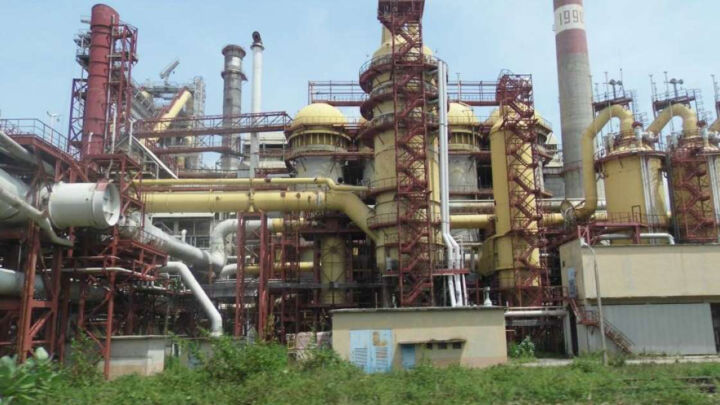The Ajaokuta Steel Company, a long-dormant industrial giant in Nigeria’s manufacturing history, is once again in the spotlight for financial irregularities—this time over a staggering ₦5.6 billion electricity debt. The steel plant, which has remained largely non-operational for decades, is reportedly saddled with accumulated electricity bills despite producing no steel or engaging in commercial activities on a scale that would justify such a massive liability.
This revelation has reignited debates about the management and oversight of the company, which many regard as one of Nigeria’s most ambitious yet failed industrial projects. Concerns are growing over how a facility that has been idle for years could owe such a huge amount in electricity charges. The development also raises further questions about the government’s repeated pledges to revive the company, which was originally designed to be the cornerstone of Nigeria’s industrialization.

Electricity providers are now pressing the federal government to address the mounting debts. The unpaid bill has led to threats of disconnection from the national grid, with service providers demanding immediate action. Officials claim the electricity bills include both active consumption and fixed service charges that have been accumulating over time. However, critics argue that it is irrational for such high charges to be imposed on a company that has not been producing or consuming power at industrial levels.
There have been speculations that the majority of the debt may stem from administrative oversights, poor monitoring, or interest on unpaid bills rather than actual power usage. Experts in the energy sector have questioned the billing practices and called for an independent audit of the debt to ascertain how it was calculated and whether it reflects genuine electricity usage.
The federal government has since acknowledged the situation and indicated plans to investigate the circumstances that led to the ballooning debt. According to officials within the Ministry of Steel Development, the federal authorities are working on a strategy to engage relevant stakeholders—including electricity distribution companies, the Transmission Company of Nigeria (TCN), and the Nigerian Electricity Regulatory Commission (NERC)—to review the legitimacy of the charges and map out a realistic repayment plan.
The revelation comes at a time when the country is grappling with multiple economic challenges, including rising debt levels, high inflation, and struggling industrial output. In that context, the Ajaokuta Steel Company has become symbolic of Nigeria’s broader issues in the industrial sector—plagued by poor planning, policy inconsistency, and inefficient project execution.
The debt crisis at Ajaokuta also sheds light on the unsustainable pattern of allowing inactive or underutilized public assets to consume large financial resources without commensurate output. Analysts have noted that reviving the steel plant will not only require clearing its debts but also restructuring its entire operational and financial model. Many have argued that without a complete overhaul of the plant’s governance structure and management approach, efforts to bring it back to life will likely remain a drain on public funds.
Furthermore, the incident has drawn criticism from civil society groups and economic analysts who believe the situation is indicative of a lack of transparency and accountability in the administration of national assets. They have urged the government to make the findings of its investigation public and take decisive action against any form of mismanagement uncovered in the process.
The issue has also reignited calls for the privatization or concessioning of the Ajaokuta Steel Company. Several past administrations have explored the idea, but negotiations have frequently stalled due to political interference, legal disputes, or concerns about transparency. However, some stakeholders believe that a well-structured public-private partnership could breathe new life into the steel complex, restore investor confidence, and reduce the financial burden on the federal government.
Meanwhile, local communities and workers around Ajaokuta remain hopeful that the government’s renewed interest in the plant’s affairs might lead to meaningful reforms. Many families in the region have long depended on the company for employment and economic activity, which declined significantly following the plant’s dormancy. For them, the recent attention presents a slim hope that something tangible might finally emerge from the decades of promises surrounding the facility’s revival.
The current situation, while troubling, could offer an opportunity for a long-overdue reckoning. As the government prepares to initiate investigations and possible financial reforms, the future of Ajaokuta Steel Company hangs in the balance. Clearing the ₦5.6 billion electricity debt may only be the first step in a much longer journey to determine whether the plant can finally fulfill its original purpose—or continue as a cautionary tale of Nigeria’s industrial ambitions gone awry.
Support InfoStride News' Credible Journalism: Only credible journalism can guarantee a fair, accountable and transparent society, including democracy and government. It involves a lot of efforts and money. We need your support. Click here to Donate
